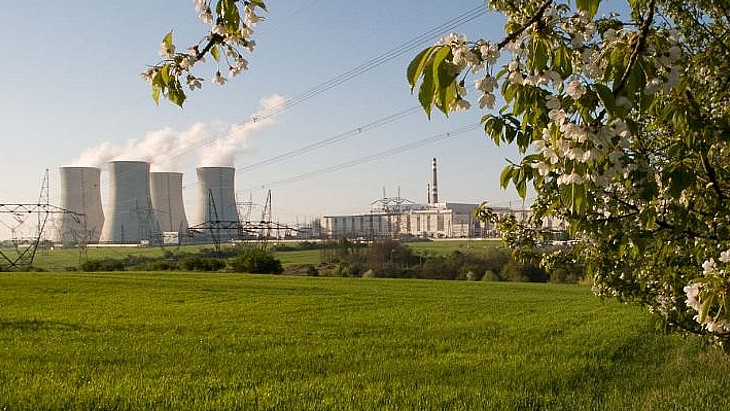The Czech Republic is planning new nuclear capacity and in July last year announced Korea Hydro & Nuclear Power (KHNP) was the preferred bidder, ahead of France's EDF. EDF brought a case to the Czech competition authority challenging the tender process, which was dismissed last month. That cleared the way for the planned signing of the official contracts with KHNP last Wednesday. However EDF succeeded in securing a last-minute court injunction in a Czech regional court on 6 May to stop the contract being signed until its case relating to the tender process has been heard in court.
It has now emerged that a letter was sent on 2 May by the European Commissioner for Industrial Strategy, Stéphane Séjourné, with the subject line: "Request for Immediate Action to Suspend Contract Signature for the New Nuclear Reactors of Dukovany and Temelin". The letter, published in full by Euractive, says that "given the current global geopolitical situation" there is a "critical duty to ensure the security of energy supply and maintain energy security across the internal market, including Czechia ... and we want to work with you to ensure its (the project's) legality".
The letter adds that the European Commission had already started a preliminary review "to assess whether potential foreign financial contributions received by the Party (KHNP) constitute foreign subsidies and, if so, whether those foreign subsidies distort the internal market with respect to the project".
The commissioner's letter suggests that "significant indications remain" that this might be the case and "without preempting the final decision, the Commission is currently in the process of preparing a decision initiating an in-depth investigation". It then warns that if the contract was signed before a decision was taken it would be "contrary to Czechia's obligation" under "Article 4 (3)" (which says European Union member states should "refrain from any measure which could jeopardise the attainment of the Union's objectives").
A statement published by the Ministry of Industry and Trade, said: "As confirmed today by the European Commission spokesperson, the courtesy letter sent to Minister Vlček by French Commissioner Sejourne is not legally binding. The Minister replied to the letter within 4 working days of its receipt, after assessing the binding nature of the courtesy letter and verifying the French Commissioner's claims with the companies and authorities concerned. KHNP responded to the European Commission's questions on 27 February and has not received any response since then."
It added that the letter sent to the project development company Elektrárna Dukovany II "was not sent to the CEO of Dukovany II, Petr Závodský, or to any other relevant person, but to an unused general company e-mail. This request was also not accompanied or followed by any further communication. EDU II will send its response in the coming days".
The statement added that Vlček said there would be "all necessary cooperation" with the Commission and he also said that, "according to the expert opinion of the Ministry of Industry and Trade, the EPC contract with the company KHNP was not subject to the Regulation on Foreign Subsidies. This was due to both the nature of the contract itself and the fact that the tender procedure had been initiated before the effective date of this Regulation".
Ahead of the court injunction being granted last week, the Czech nuclear power plant operator CEZ said that its Elektrárna Dukovany II project company had conducted the tender "in all phases in a fully transparent manner and under completely fair conditions".
At the time of the selection of KHNP in July 2024, Prime Minister Petr Fiala said the aim was to reach the signing of contracts for the initial unit by the end of March 2025, with the target for test operation of the first new unit being 2036 and commercial operation in 2038. He said the winning tender "based on the evaluation of experts, offered better conditions in most of the evaluated criteria, including the price". The KHNP bid was for a cost of around CZK200 billion (USD8.6 billion) per unit, if two units were contracted.
It was announced at the end of April that the Czech state - which already owns 70% of CEZ - was going to purchase 80% of shares in the Elektrárna Dukovany II project, with CEZ retaining a 20% stake. The 80% stake was valued at CZK3.6 billion (USD163 million).
The Czech Republic currently gets about one-third of its electricity from the four VVER-440 units at Dukovany, which began operating between 1985 and 1987, and the two VVER-1000 units in operation at Temelín, which came into operation in 2000 and 2002.















